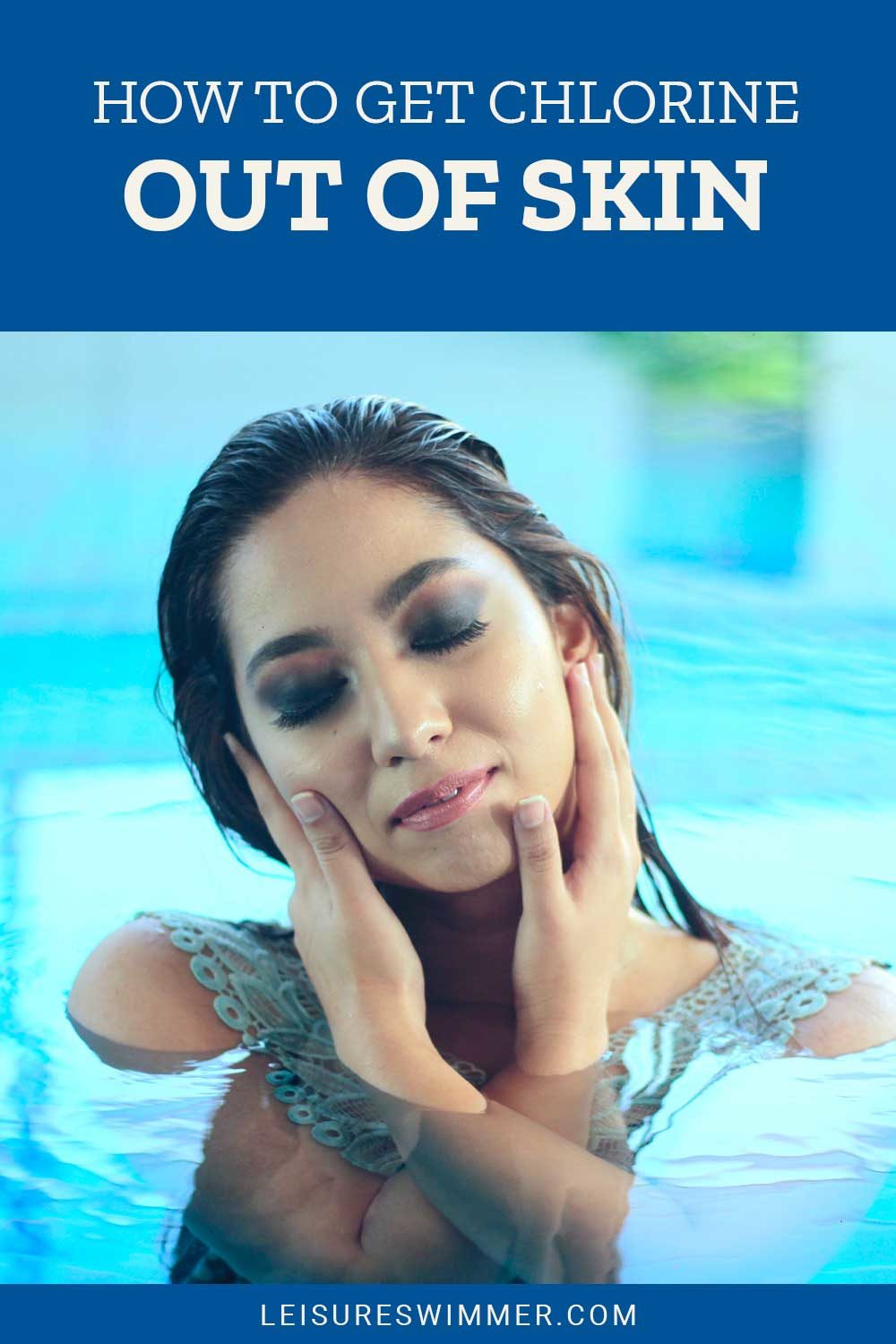How To Get Chlorine Out Of Skin
We may earn commissions for purchases made through links on our site. Learn more on our about us page.
The best practice to prevent chlorine from lingering on the skin is to rinse off after getting out of a pool, hot tub, or similar recreational facility.
Then, go and shower afterward; this action and habit will remove most chlorine from the skin and go a long way to avoiding a rash.
Some petroleum jellies, like the product Vaseline, will have irritation caused by chlorine or other pool cleaning solutions. For the most part, the best course of action is to rinse or wash any skin after being exposed to chlorine.

How Long Does Chlorine Stay on Your Skin?
Chlorine is one of those chemicals that does not break down immediately, and like ethanol or other cleaning chemicals, it will break down the matter for cleaning. However, this chemical has its beneficial aspects, most of which include sanitation and bacterial removal.
The issue is that when chlorine has been on the skin for too long, it can get down into the dermal layers removing the natural oils and potentially damaging the skin and causing premature aging.
Therefore, the chemical must be removed from the skin, or else it will continue to irritate the skin and can cause dermatological damage.

What Is the Best Solution?
The best solution would be to get into the healthy habit and practice of rinsing off after getting out of a pool or being exposed to chlorine. If this is not an option, the best course of action would be to find a means of rinsing or washing the chemical away from the skin.
As mentioned above, items similar to Vaseline will help negate any burning or irritation caused by over-exposure to the chemical.
Then, of course, the simplest way to avoid exposure to chlorine would be to skip the local swimming pool and go with natural waterways.
Does Vinegar Remove Chlorine from the Skin?
This is not the most recommended solution, an effective one, but all the same, the smell might be off-putting. It is commonly known that vinegar can help neutralize chlorine and the burning effects of overexposure.
Suppose the itching becomes unbearable and needs to be addressed. In that case, there is hardly a better solution than an oat bath or vinegar rinse followed by a moisturizing rinse or soak.
Certain bases, like baking soda, can have a similar effect to vinegar and be an effective solution to chlorine burns, irritation, or rashes.
What Body Wash Removes Chlorine?
Consider whether specifically designed products effectively remove chlorine from the skin better than generic brand soaps.
TRISWIM created the swimmer-designed shampoos and soaps to help the competitive and recreational pool rat keep and maintain healthy skin without the dry itching irritation caused by prolonged exposure to chlorine water.
The more well-known products will be TRI HARD or TRISWIM brand shampoos and soaps, not exactly household names but good to know all the same. A thing to remember is that any good soap and moisturizer will get most pool water chlorine off of the skin.
What Happens if You Don’t Wash the Chlorine off Your Skin?
It will not be the end of the world if a person does not get pool-grade chlorine off the skin; anything more intense than that could, in effect, eat the skin right off your bones. Thankfully there are very few real-world purposes for that strength of chlorine.
Pools being the least of them, they will experience dry skin and potentially itching and rash-like conditions if a person does not shower after being in the pool. If there is prolonged exposure, there could be severe burning or, worse, blood poisoning and risk of death.
Final Thoughts on How to get Chlorine Out of Skin
There are not going to be a ton of situations that require intense forms of chlorine, the most common form of exposure is at the local pool, where it is used to sanitize the water and maintain a healthy environment that is bacterial and viral-free.
A healthy practice, which is very easy to follow, is to rinse off in the shower after every swim. This can be done in the locker room with the swimwear that was just being worn or in the shower of the current place of residence immediately after arriving home.
Chlorine is a potentially dangerous chemical in concentrated forms but is not too risky for the community pool.


